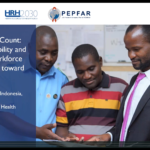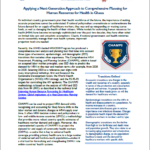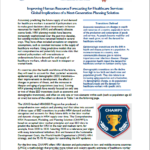03 Feb HRH2030 Director’s Digest: February 2020
Today, it’s well-acknowledged that health system resiliency needs to be fostered continuously, so that systems can better withstand shocks as they occur. Our HRH2030 team believes that health workers themselves—and those closest to supporting and managing them—have the best ideas about how to foster...













